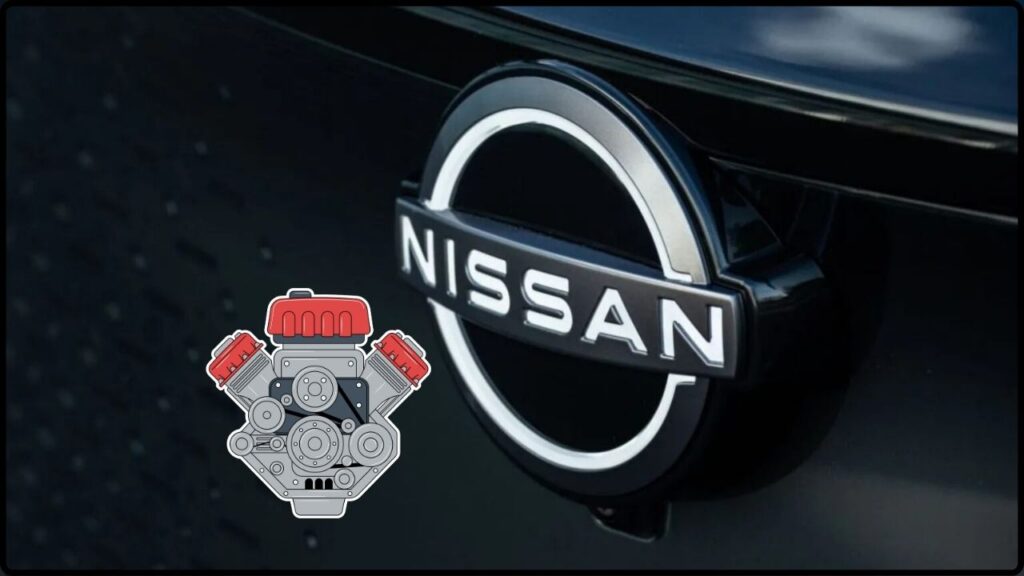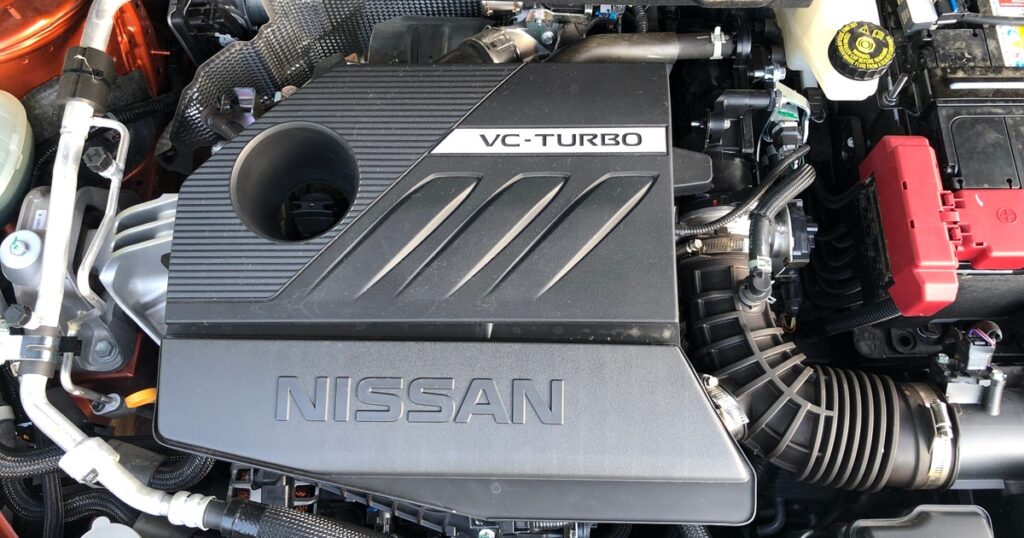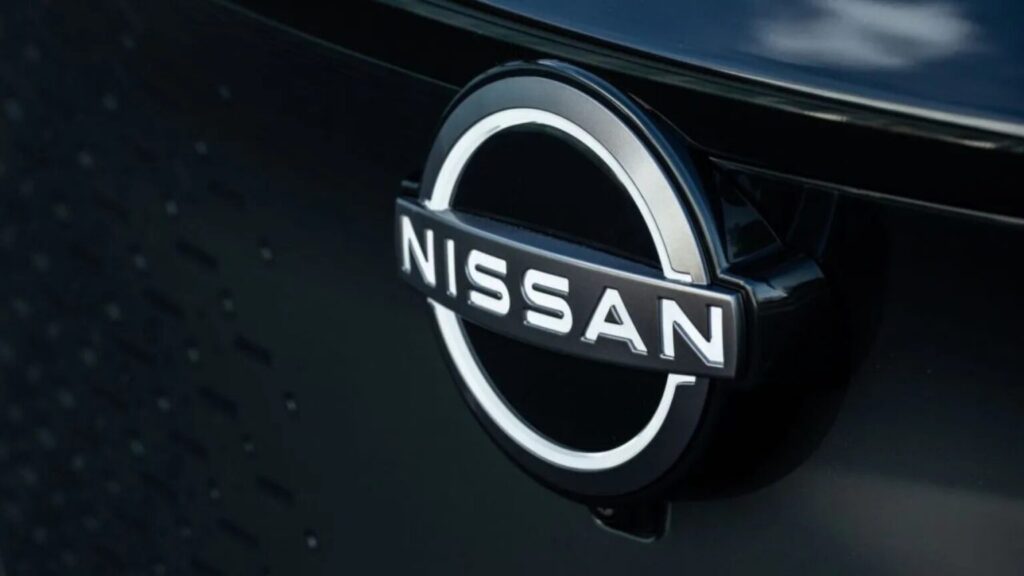
480,000 Vehicles Recalled Over Serious VC-Turbo Engine Failure Risk: Nissan, one of the most iconic automakers in the world, has recently issued a massive recall of over 480,000 vehicles in North America due to a serious VC-Turbo engine failure risk. This recall includes several of Nissan’s most popular models and is a precautionary measure to ensure the safety of consumers. The issue stems from a potentially catastrophic failure in the Variable Compression Turbo (VC-Turbo) engines, which could lead to engine damage or even complete failure while driving. This problem not only affects car owners’ safety but also raises significant concerns regarding vehicle reliability and the potential long-term consequences for the company’s reputation. In this article, we’ll break down everything you need to know about this massive recall, the VC-Turbo engine at the heart of the issue, and what vehicle owners need to do to protect themselves. From understanding the technical details of the recall to practical advice on how to handle the situation, we’ll provide you with all the information you need in a clear, easy-to-understand manner.
480,000 Vehicles Recalled Over Serious VC-Turbo Engine Failure Risk
While the VC-Turbo engine recall may seem daunting, it’s important to remember that Nissan is actively addressing the issue to ensure that all affected vehicles are repaired or replaced at no cost to the owner. If you own a Nissan or Infiniti model with a VC-Turbo engine, stay informed and take the necessary steps to protect yourself and your vehicle. Whether you’re a casual driver or a car enthusiast, understanding the nuances of automotive recalls and their impact can help you make informed decisions about your car’s safety. Be proactive, stay aware, and don’t hesitate to reach out to Nissan for guidance.
| Key Takeaways | Details |
|---|---|
| Recall Scope | Over 480,000 vehicles in the U.S. and Canada. |
| Affected Models | 2021–2024 Nissan Rogue, 2019–2020 Nissan Altima, 2019–2022 Infiniti QX50, 2022 Infiniti QX55. |
| Cause of Recall | Manufacturing defects in the VC-Turbo engine bearings. |
| Potential Risks | Engine failure, loss of power, and safety hazards on the road. |
| Action for Owners | Nissan to inspect and repair engines at no cost; preventative maintenance offered if no debris is found. |
| Key Dates | Notification letters to be sent to affected owners starting August 25, 2025. |
| Official Sources | Nissan Recall Information |
What is the VC-Turbo Engine and Why is it So Important?
The VC-Turbo engine is a breakthrough technology developed by Nissan that promises to deliver both high performance and fuel efficiency. This engine is unique because it can adjust its compression ratio — a feature that allows it to optimize fuel consumption and performance. At the heart of this engine is the ability to adapt to driving conditions by changing its compression ratio from 8:1 for performance to 14:1 for fuel efficiency, offering drivers an optimal balance between power and economy.
Nissan introduced the VC-Turbo engine in their popular Altima and Rogue models, as well as in their Infiniti QX50 and QX55 models. The idea behind this was to deliver a more responsive driving experience while keeping fuel consumption low — a perfect balance for modern drivers. However, this innovative engine design has come with some unexpected issues.
What Went Wrong? A Deep Dive into the Recall
The core issue that led to this recall is related to manufacturing defects in the engine bearings. These bearings are responsible for supporting the internal moving parts of the engine, ensuring that they move smoothly and efficiently. However, in certain vehicles, these bearings can wear out prematurely due to faulty manufacturing processes. If this happens, it can lead to serious engine damage or even complete engine failure. This failure could occur suddenly while the vehicle is in motion, posing a significant safety risk.

How Serious is the Issue?
If the engine bearings fail, it can result in a loss of power, rough operation, and even engine shutdown. This could lead to dangerous situations on the road, especially at high speeds or in heavy traffic. The last thing any driver wants is for their vehicle to lose power unexpectedly. Nissan has acknowledged the seriousness of the issue and is acting quickly to address it by issuing a recall.
Symptoms of VC-Turbo Engine Problems
If you own a vehicle with a VC-Turbo engine, it’s important to be aware of the potential signs of trouble. Some of the common symptoms of an engine with failing bearings include:
- Unusual engine noises: Grinding or knocking sounds coming from the engine.
- Rough engine operation: The engine may feel sluggish or unresponsive.
- Dashboard warning lights: Check engine or oil pressure warning lights may appear.
If you notice any of these signs, it’s essential to take your vehicle to a Nissan dealership for inspection as soon as possible. Even if you don’t experience any of these issues yet, it’s still worth checking your vehicle as part of the recall.
What Should You Do if You’re One of the 480,000 Vehicles Recalled Over Serious VC-Turbo Engine Failure Risk?
For vehicle owners affected by this recall, Nissan is offering a thorough inspection and repair process at no cost. Here’s what you need to do:
Step 1: Check if Your Vehicle is Affected
The first thing you should do is check whether your vehicle is part of the recall. You can visit the official NHTSA website or contact Nissan’s customer service at 800-647-7261 for assistance. You’ll need to provide your Vehicle Identification Number (VIN), which can be found on your car’s dashboard or inside the driver’s side door frame.
Step 2: Schedule an Inspection
If your vehicle is affected, you’ll need to schedule an appointment with a Nissan dealership. Nissan will inspect the engine oil pan for any metal debris caused by the engine bearing issues. If the dealership finds debris, the engine will be repaired or replaced at no cost to you.
Step 3: Preventative Maintenance
In cases where no debris is found, the dealership will still perform preventative maintenance based on the engine type to ensure it continues to run smoothly. This will help to prevent future problems and ensure that your vehicle remains safe to drive.
Step 4: Wait for Notification
If you’re an affected owner, you will receive a notification letter from Nissan starting on August 25, 2025. The letter will provide detailed instructions on how to proceed with the inspection and repair process.

Nissan’s Commitment to Innovation and Reliability
Nissan has long been a pioneer in the automotive industry, with a history of developing cutting-edge technology and high-performance vehicles. Despite this current issue with the VC-Turbo engine, Nissan has earned a reputation for building reliable, durable vehicles that stand the test of time. The company’s commitment to safety and quality is evident in how quickly they’ve responded to this recall, offering free repairs and inspections to affected owners.
Nissan’s focus on innovation, especially with the VC-Turbo engine, demonstrates their commitment to advancing vehicle technology and making driving experiences more efficient and exciting. While this recall is a setback, it does not overshadow the years of expertise and quality Nissan has brought to the market.
What Happens if You Don’t Respond to the Recall?
Ignoring a recall can be risky, especially when it involves something as crucial as the engine. If you don’t address the issue and continue to drive a vehicle with defective engine bearings, you risk complete engine failure while driving. This could result in accidents or serious damage to your car, not to mention the potential voiding of your vehicle’s warranty.
In addition, unaddressed recalls can affect resale value, as prospective buyers are often cautious about vehicles with unresolved safety issues. Therefore, it’s best to act promptly and get your vehicle inspected as part of the recall.
Impact on the Used Car Market
The Nissan recall could also have an impact on the used car market, particularly for those interested in purchasing or selling vehicles that are affected by the recall. Potential buyers may be hesitant to purchase a vehicle with a history of recalls, even if the issue has been fixed. On the other hand, owners may find their vehicles’ resale value reduced if the recall affects models like the Nissan Rogue or Altima, which are popular in the used car market.
However, if the engine is inspected, repaired, and certified as safe by Nissan, these vehicles could still hold their value in the long term. Buyers should make sure the necessary repairs have been done before completing a purchase.
New Speed Control Technology Set for 2026: Washington’s Bold Move to Reduce Car Speeds Explained
Trump’s New Law Will End Electric Car Incentives in Just Three Months—What This Means for Buyers
New Auto Loan Tax Break May Save Buyers Thousands — But Will It Spark Sales?











